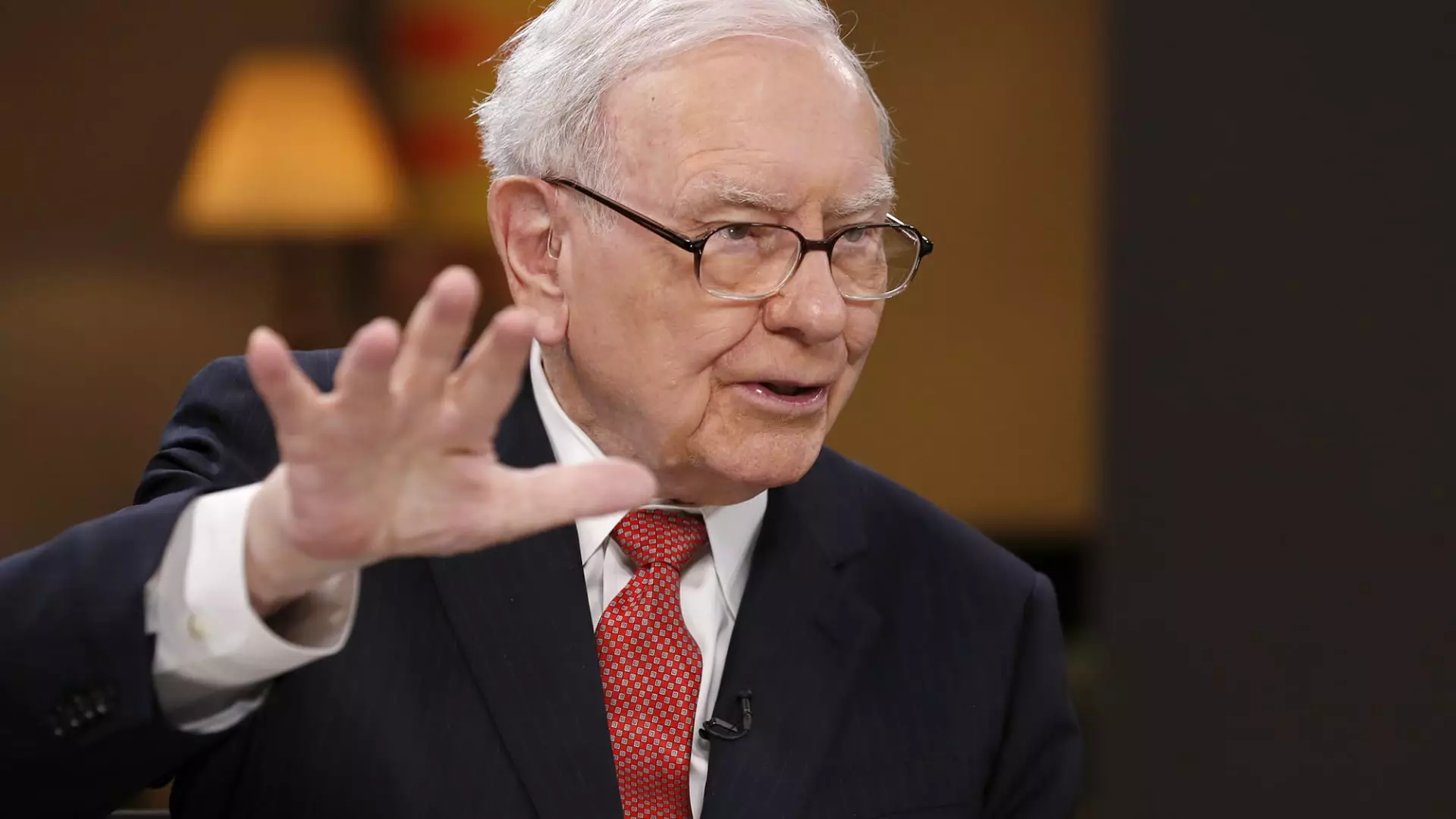Warren Buffett, a name synonymous with investment wisdom and philanthropism, has recently reiterated his commitment to addressing the complexities of wealth inheritance. Having built a personal fortune of approximately $150 billion, the “Oracle of Omaha” is not just concerned with accumulating wealth but is exceptionally deliberate about how it is distributed. By appointing independent trustees to oversee his philanthropic endeavors and announcing significant donations to family foundations, Buffett is sending a powerful message against the formation of “dynastic” wealth.
Buffett’s decision to donate an additional $1.1 billion in Berkshire Hathaway stock to four family foundations underscores his commitment to philanthropy over personal inheritance for his children. At 94 years old, Buffett has pledged to donate 99% of his wealth, choosing not to leave behind an enormous inheritance that could potentially hinder personal growth and create tensions among family members. His thoughtful approach highlights how great wealth can sometimes become a double-edged sword, complicating relationships rather than enriching them.
Buffett’s insights reflect a deep understanding of human dynamics. He pointedly remarks on the unpredictable nature of future generations, recognizing that they may have different priorities: “Who can foresee the priorities, intelligence and fidelity of successive generations?” This statement encapsulates his concerns regarding the ability of heirs to manage extraordinary wealth responsibly. Buffett’s perspective offers a stark contrast to traditional views on inheritance, where wealth is often passed down through generations with little questioning of its effects on those who inherit it.
To ensure that his wealth is managed wisely in the future, Buffett has appointed three trustees who are well-known to his children. These individuals, who are younger than Buffett’s children who are now aged 71, 69, and 66, are seen as potential successors in disbursing his wealth. This strategic decision demonstrates Buffett’s belief that those who manage philanthropic funds must go beyond familial ties and should possess the integrity, wisdom, and vision necessary for effective charity work.
While the identities of these trustees remain undisclosed, it’s clear that their selection is based on a rigorous understanding of philanthropy and human behavior. Buffett has emphasized the importance of trust and capability in his children’s ability to manage the resources under their potential control. He describes the significant professional growth his children have experienced in the realm of large-scale philanthropy over the past years, further affirming their readiness to take on this heavy responsibility.
Buffett’s approach to wealth distribution takes a broader societal problem into account: the growing divide between the very wealthy and everyone else. His endeavor to create a philanthropic landscape that values responsibility and sustainability aims to mitigate the societal uncertainties that come with inherited wealth. By spreading his wealth through trusts rather than direct familial inheritance, he is taking a calculated risk to ensure that the impact of his fortune reaches beyond his immediate family.
Berkshire Hathaway, under Buffett’s aegis, has evolved into a colossal force in various industries, ranging from insurance with Geico to consumer brands like Dairy Queen. With its market capitalization surpassing $1 trillion, the conglomerate reflects Buffett’s business acumen and commitment to long-term value. However, the true hallmark of his legacy might ultimately be how he chooses to leverage this wealth for societal benefit.
Warren Buffett’s stance against the creation of dynastic wealth is a progressive framework that emphasizes the social implications of inherited fortune. His respectful and strategic approach to philanthropy, which includes appointing knowledgeable trustees and actively donating substantial portions of his wealth, illustrates a commitment to both family and broader societal betterment. As he prepares the path for distributing his resources posthumously, he sets an example for other high-net-worth individuals to consider the real value of their wealth beyond personal legacy. In a world challenged by inequality, Buffet’s philanthropic framework may serve as a guiding light for future generations and a blueprint for responsible wealth distribution.

